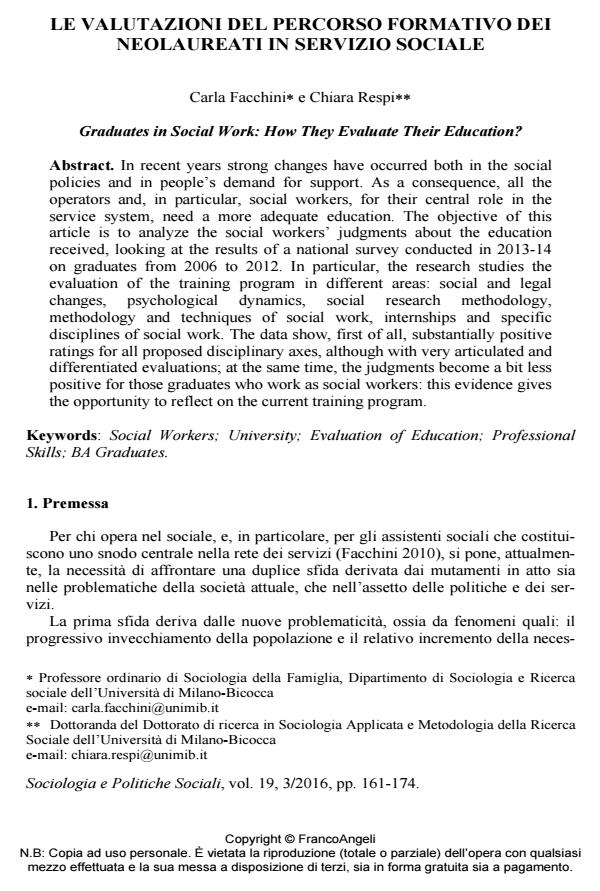Graduates in Social Work: How They Evaluate Their Education?
Journal title SOCIOLOGIA E POLITICHE SOCIALI
Author/s Carla Facchini, Chiara Respi
Publishing Year 2016 Issue 2016/3
Language Italian Pages 14 P. 161-174 File size 234 KB
DOI 10.3280/SP2016-003010
DOI is like a bar code for intellectual property: to have more infomation
click here
Below, you can see the article first page
If you want to buy this article in PDF format, you can do it, following the instructions to buy download credits

FrancoAngeli is member of Publishers International Linking Association, Inc (PILA), a not-for-profit association which run the CrossRef service enabling links to and from online scholarly content.
In recent years strong changes have occurred both in the socialpolicies and in people’s demand for support. As a consequence, all theoperators and, in particular, social workers, for their central role in theservice system, need a more adequate education. The objective of thisarticle is to analyze the social workers’ judgments about the educationreceived, looking at the results of a national survey conducted in 2013-14on graduates from 2006 to 2012. In particular, the research studies theevaluation of the training program in different areas: social and legalchanges, psychological dynamics, social research methodology,methodology and techniques of social work, internships and specificdisciplines of social work. The data show, first of all, substantially positiveratings for all proposed disciplinary axes, although with very articulated anddifferentiated evaluations; at the same time, the judgments become a bit lesspositive for those graduates who work as social workers: this evidence givesthe opportunity to reflect on the current training program.
Keywords: Social Workers; University; Evaluation of Education; ProfessionalSkills; BA Graduates.
Carla Facchini, Chiara Respi, Le valutazioni del percorso formativo dei neolaureati in servizio sociale in "SOCIOLOGIA E POLITICHE SOCIALI" 3/2016, pp 161-174, DOI: 10.3280/SP2016-003010